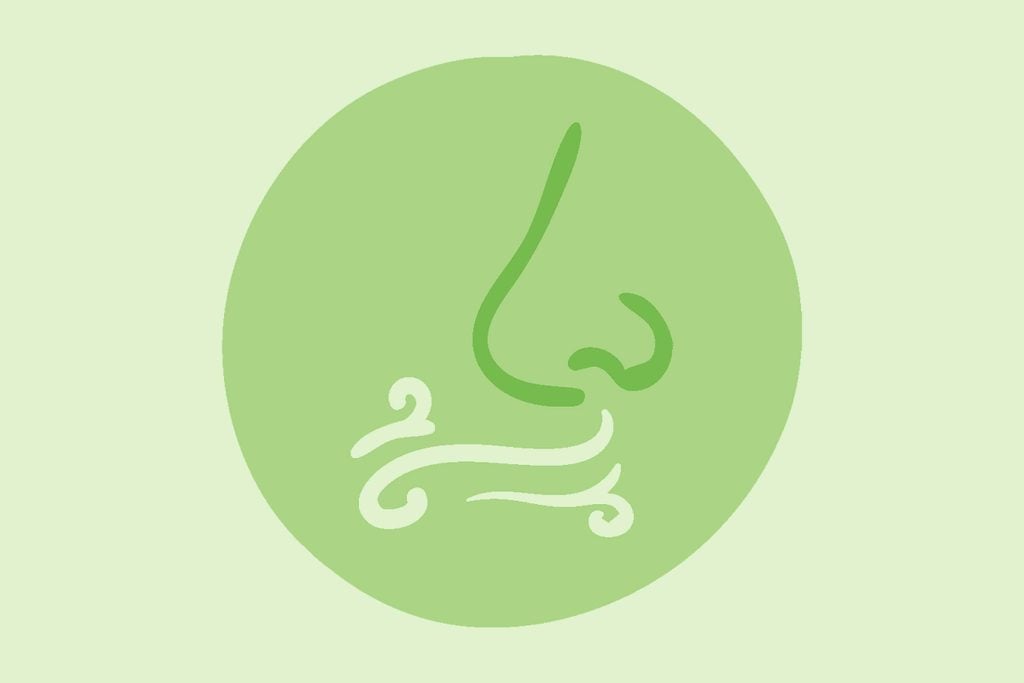There’s a Reason You Feel Like Smells Always Get Stuck in Your Nose
Updated: Apr. 27, 2021
Here's why you can smell your co-worker's heavy perfume long after you've left the office.
 In an ideal world, we’d all only ever smell our favorite aromas, like that amazing scented candle that transports us right back to that decadent spa weekend. Or smells that make us happy, like freshly freshly cut grass, baby powder, peppermint, or pine. Unfortunately life doesn’t always smell of roses (or peppermint, or pine) and often it’s the smells we don’t like that linger in our nasal cavities. And we’re not just talking about the objectively terrible scents—it could be your co-worker’s heavy perfume that won’t stop haunting you. The reality, the offending smell is more likely stuck to your clothing or even nose hairs. (Here’s what your perfume says about your personality.)
In an ideal world, we’d all only ever smell our favorite aromas, like that amazing scented candle that transports us right back to that decadent spa weekend. Or smells that make us happy, like freshly freshly cut grass, baby powder, peppermint, or pine. Unfortunately life doesn’t always smell of roses (or peppermint, or pine) and often it’s the smells we don’t like that linger in our nasal cavities. And we’re not just talking about the objectively terrible scents—it could be your co-worker’s heavy perfume that won’t stop haunting you. The reality, the offending smell is more likely stuck to your clothing or even nose hairs. (Here’s what your perfume says about your personality.)
If you’ve ever sat around a campfire and smelled your clothes the following day, you know how scents can stick to clothing. There may be another dynamic at work, though: An interaction between the olfactory system (sense of smell) and brain. Sometimes, we even recreate a smell through our memory. Popular Science reveals that when psychologist Avery Gilbert performed studies on smell conjuring, he found that people are able to recreate odors in their minds, even when they dream.
“Odors induce reverberating circuits which can persist even after you left the smell,” explains Alan Hirsch, MD, of the Smell & Taste Research Foundation. Hirsh suggests smelling alternative odors to try and get rid of the unpleasant smell, such as mint, or even chewing mint-flavored gum for a similar effect.)
(By the way, science has figured out why old books smell so good.)
If you just can’t get rid of a persistent smell, you may be suffering from a smell disorder, such as parosmia, which causes a change in the way you perceive smell and may give the impression that you have a bad smell “stuck” in your nose. Things that once had a pleasant odor may smell foul, or vice versa. According to the National Institute on Deafness and Other Communication Disorders (NIDCD), 1 to 2 percent of North Americans report problems with their sense of smell. Another smell disorder is phantosmia, which involves smelling odors that are not present. Instead, they are entirely created by your nose and your brain. Your physiology is causing you to “make smells up,” which could come across as having a smell “stuck” in your nose. (On the other end of the scale, hyposmia is a reduced ability to detect odors, and anosmia is the complete inability to detect odors.)